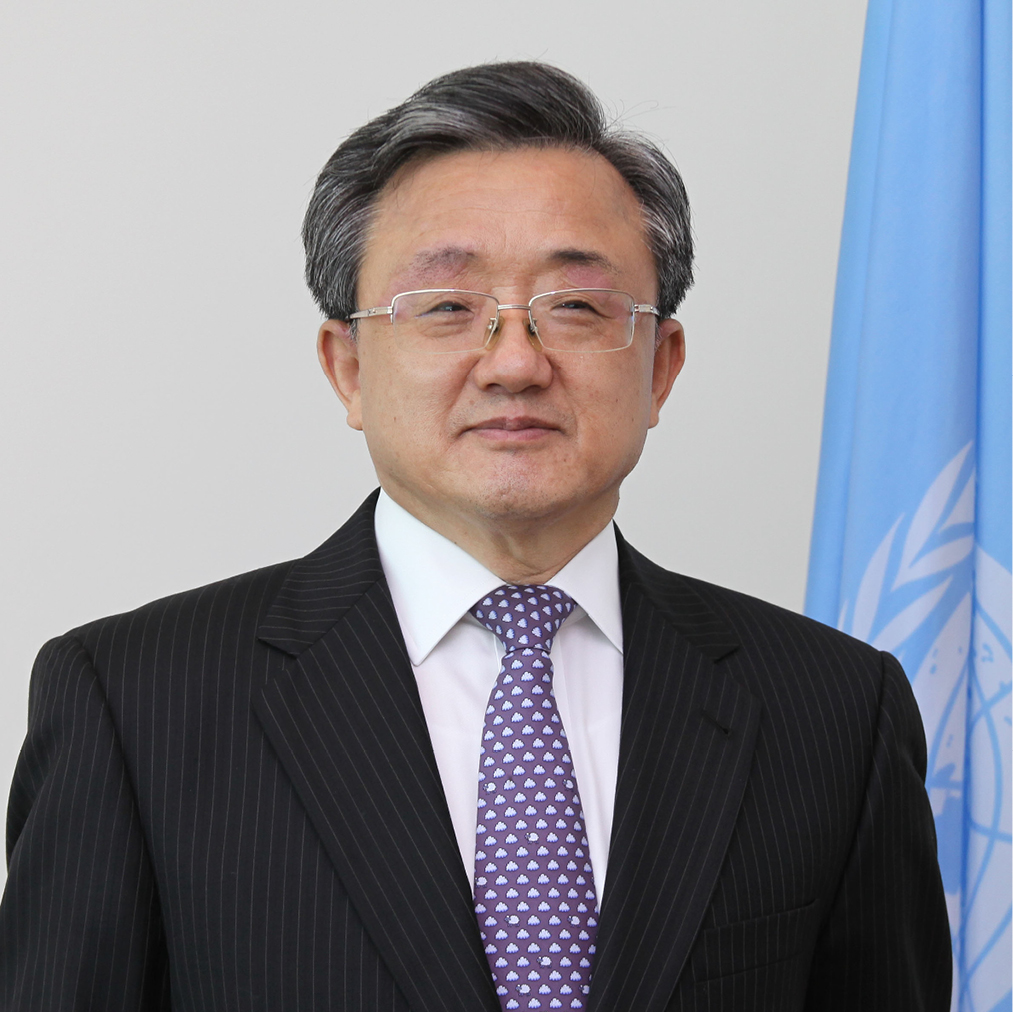The United Nations High-level Advisory Board (HLAB) on Economic and Social Affairs was established in June 2018 to help strengthen the United Nations Department of Economic and Social Affairs (UN DESA) in the context of United Nations development system reform, and as a key part of efforts to enhance support to Member States of the United Nations in implementing the 2030 Agenda for Sustainable Development.
The HLAB consists of globally renowned experts in the economic and social policy fields, including former Heads of State, Nobel laureates, former Senior Government Officials and intellectual leaders. It has provided guidance to the research and policy analysis work of UN DESA, including topics for its flagship publications. The Board members have played an active role in strengthening the linkage between UN DESA and the global economic and social policy research community, and have promoted UN publications and reports at national and global levels.
Building on the accomplishments of the first HLAB, the Board entered its second term in January 2021, which will continue until 2023. The second term of the Board will continue to strengthen the United Nations thought leadership on sustainable development and to reinforce its impact at the forefront of sustainable development policy at global, regional and local levels. In particular, the Board aims to provide focused guidance and recommendations on both the immediate policy options needed to ensure our post-pandemic recovery, and the medium- to long-term strategic vision to deliver the proposals as outlined in the UN Secretary-General’s report on Our Common Agenda.
Six Big Questions for the Global Economic Recovery: The UN High-level Advisory Board Q&A Compendium is a compilation of the key messages and policy recommendations of the Board from Advisory Board meetings held in 2021 and March 2022. It is organized into six thematic sections, each presented in question and answer format, to highlight the in-depth knowledge and insights of the Board Members.

Time magazine described 2021 as a “lurching, stammering year that began in hope, flirted with whiplash, and shuddered to a halt”. That description could not be more true.
The seemingly promising rebound of the global economy in 2021 proved fragile and was grossly uneven. For many countries, especially in the developing world, COVID-19 cases in 2021 grew amid limited fiscal space and inadequate vaccination progress. Beyond the direct impact of COVID-19 infections and deaths, this extraordinary crisis forced families into poverty, exacerbated income and wealth inequalities, and disrupted international trade, stunting many national economies.
The aftershocks of 2021 have continued into 2022, with geopolitical tensions and the conflict in Ukraine adding to a barrage of pre-existing challenges and sending shockwaves through global food, energy and commodity markets. As risks to people’s economic security have increased, their ability to cope and recover has been unable to keep pace. Policies, services and social protection systems are struggling to adapt to rapid changes. And in some cases, the very system of international finance hampers country prospects. While some countries have been able to take advantage of low interest rates to finance social protection and sustainable investment, there is growing concern that the cost of financing for countries most in need, particularly those with high debt burdens, is rising.
Concurrent and intertwined crises are undermining years of development progress.
It is against this backdrop that the 20-member United Nations High-level Advisory Board on Economic and Social Affairs (HLAB) met to discuss how the world can respond effectively and collaboratively to address the multifaceted challenges before us. In a series of dialogues held in April 2021, September 2021 and March 2022, the HLAB put forward a number of short- and longer-term suggestions for transformative response and recovery measures that would also ensure that we are better prepared to face future complex and mutually reinforcing risks that cut across economic, social and environmental dimensions.
The UN High-level Advisory Board Q&A Compendium draws on the Board’s key messages and policy recommendations for global response and recovery to answer six big questions facing policymakers today: How do we get the economy on track? How do we finance the recovery? What about inequality? Can we still save the planet? What is the role of technology in the recovery? What are the implications of population ageing for the future? The Compendium aims to make the in-depth knowledge and insights of the Board Members available to a wide spectrum of readers in support of whole-of-society solutions to issues that plague us all.
Section 1 of the Compendium outlines the Board’s recommendations for global economic recovery. We have to get the pandemic under control. This will mean addressing a number of inequities both among and within countries, including access to vaccines, access to finance and supporting economic and social inclusion, and we have to do this together, as an international community, through multilateral actions and international cooperation. The HLAB also provides suggestions for different ways to measure the development performance of countries, beyond the current metric of Gross Domestic Product (GDP), so that our future assessments of economic health, country progress, risks and resilience are measured by more than the market value of products and services produced.
Section 2 highlights the Board’s thinking on financing the recovery and how to address the large and restrictive debt burden faced by many developing countries. The HLAB advocates building a new narrative that emphasizes the long-term benefits of productive public spending that is closely aligned with the Sustainable Development Goals (SDGs). It also encourages the international community to examine existing financing tools and mechanisms to better align them with the current realities, including rethinking the criteria for long-term concessional financing, and the way the Special Drawing Rights (SDRs) are used.
Section 3 looks at the importance of economic security and the need to better understand the interrelationship between economic wealth and stability, individual health and well-being, and the quality of individual and family life. Recommendations from the HLAB touch on a number of critical issues, including government support for upskilling in the labour market, providing universal social protection, increasing the voice and agency of workers, and supporting innovation, and outline ways to ensure that economic security is better accounted for and reflected in government policies.
Section 4 shares the insights and recommendations of the HLAB on the critical issue of climate change and the actions needed for a fair transition to a net-zero path. If we are to save the planet, we need a new mindset that prioritizes planet-friendly actions and embraces cooperation. Narratives for climate action need to adapt to specific local contexts.
Section 5 examines the impact the COVID-19 pandemic has had on the use and advancement of technologies. The pandemic accelerated the uptake and application of new and existing digital technology to the benefit of many but at the same time, the shift online for many socioeconomic needs revealed chasmic digital divides. The insights from the HLAB address both the opportunities and the challenges associated with the use of technologies and stress the importance of the role of public policies in both shaping and guiding the use of technologies for the public good.
Section 6 looks at the long-term implications of the shifting dynamics of the global population that have already taken root in some parts of the world, such as ageing and population decline. It examines what this means for the future of the labour force, the care economy and unpaid care work.
The Compendium concludes with a candid look at what this all means for achieving sustainable development and strengthening global capacity to withstand future crises. There is an urgent need for us all to move away from short-term thinking and become more focused on the common good.
I hope that you find this volume both useful and inspiring.
The United Nations Department of Economic and Social Affairs (UN DESA) will continue to work closely with the members of the United Nations High-level Advisory Board on Economic and Social Affairs to complement the efforts of the Secretary-General to support Member States in their efforts to achieve the 2030 Agenda for Sustainable Development.
Liu Zhenmin
Under-Secretary-General
for Economic and Social Affairs
May 2022








